Physics Research
The University of Colorado Anschutz faculty lead a widely-recognized and highly-impactful research program. The group consists of 12 faculty physicists who perform research on a diverse set of topics including hardware development, imaging in radiotherapy research, clinical and translational trials, quality and safety work, and implementation of advanced educational ideas.
The physics faculty at the University of Colorado Anschutz have received over 4.5 million dollars in grant funding since 2015. The grants cover a wide range of topics and come from a variety of funding sources. The group’s funding includes a R21 grant to Improve CBCT Quality, R01 grants to Develop and Clinically incorporate novel lung function imaging for lung cancer patients, vendor-based funding to improve target accuracy for pancreatic SBRT , School of Medicine funding to build an In-House, compact linear accelerator , and a seed grant to improve patient safety in Radiation Oncology.
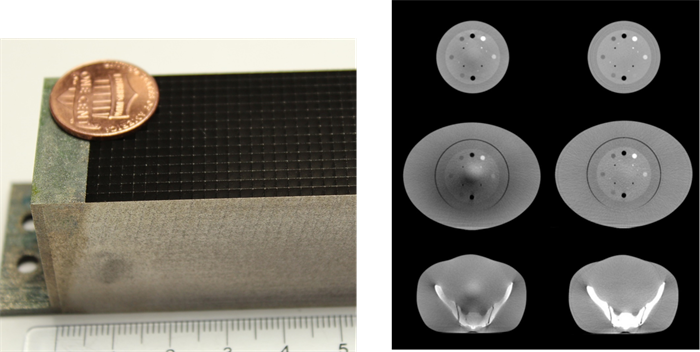
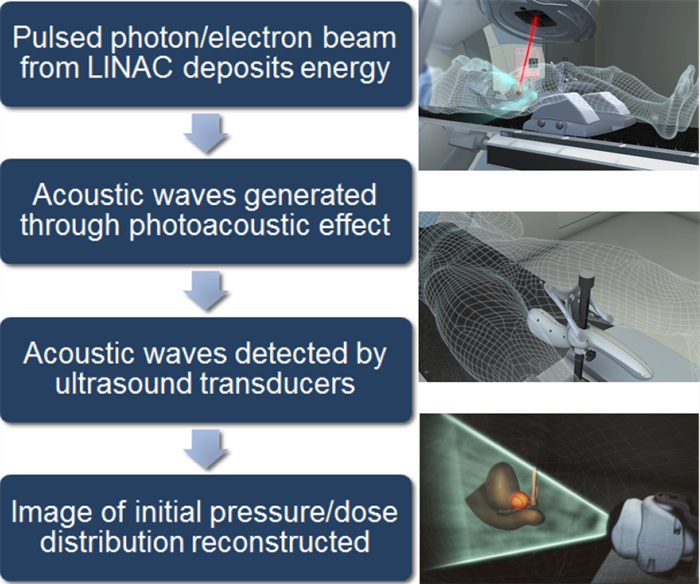
One of the most unique aspects of the department is that the physics faculty serve as Principle Investigators (PIs) on multiple clinical trials. These innovative trials include interventional work for Distraction Therapy for Pediatric Patients and Functional Lung Avoidance Radiotherapy. The group is conducting imaging-based trials aimed at Improving Evaluation of Lung Cancer Surgery Patients and Predicting Outcomes for Liver SBRT TreatmentsTreatments.
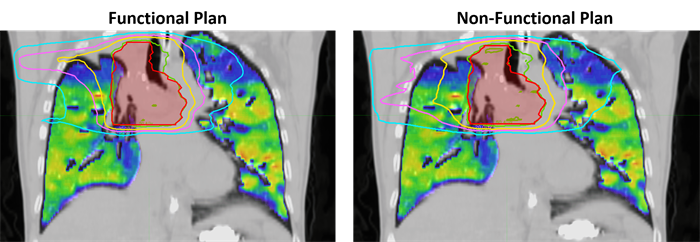
Many of the physics faculty have authored seminal publications in Medical Physics. A short list of high-impact publications include national, AAPM guidance on Tolerance limits for IMRT QA, Management of Patients with Implanted Cardiac Pacemakers as well as ASTRO/AAPM guidance on dose tolerances for Liver SBRT, Lung SBRT, and Pelvis treatments. The group has received numerous accolades for their work. Papers written by University of Colorado Anschutz faculty have been selected for Medical Physics Cover Articles, Editor’s Choice papers, and selections for the Special Imaging issue of the RED Journal. The faculty have been invited to present their work on lung function imaging at the ASTRO Presidential Symposium, educational research at the AAPM Innovation in Education Session, and CBCT research at the AAPM’s Science Council. The group has had multiple Best of Physics selections at AAPM, ASTRO, and ESTRO on a wide range of topics that include Functional Lung Imaging, Lung Normal Tissue Response to SBRT, and Cardiothoracic Surgery Evaluation. The group’s safety research was recognized at the International Atomic Energy Agency safety competition.
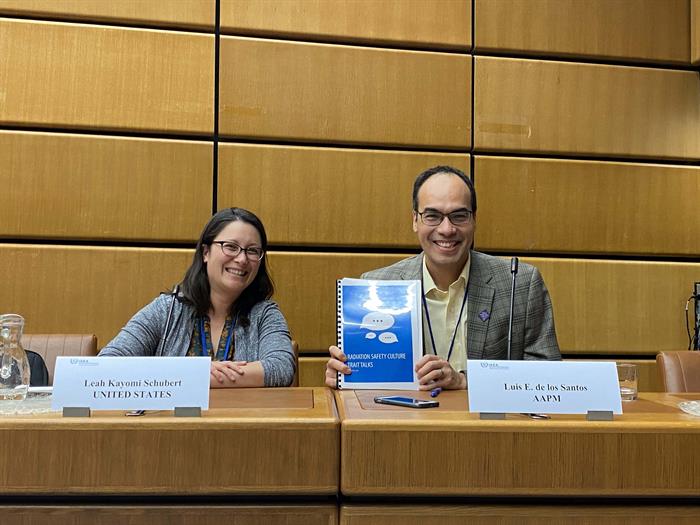
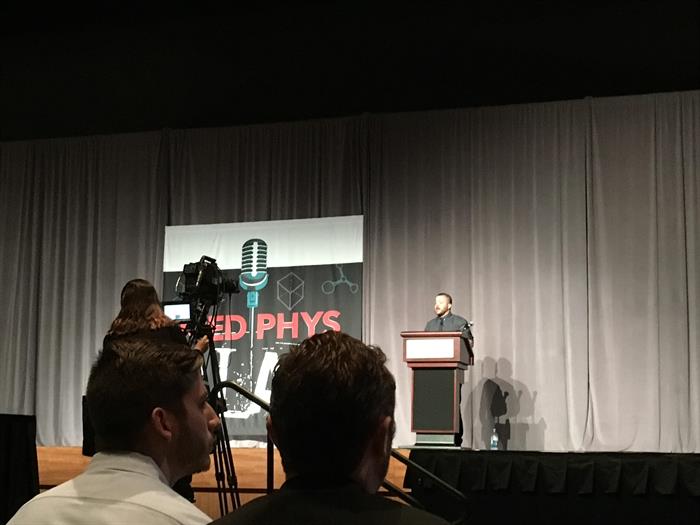
The faculty at the University of Colorado Anschutz are active in performing educational research. The research has spanned innovative ways to Teach Physics Plan Reviews, to a novel implementation of a Paperless Medical Physics Residency management system, to award-winning methods of implementing a department-wide safety culture. The high impact of the group’s educational research has been recognized with selections for the Innovation in Medical Physics Education session at the national AAPM meeting once in 2013 and again in 2019.
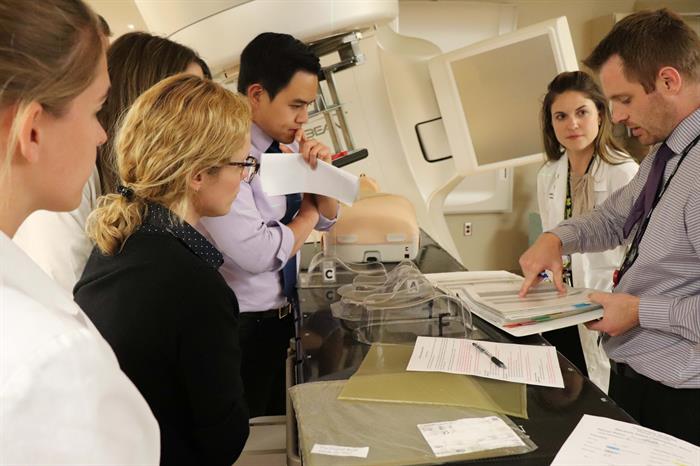
The group is active within the AAPM, ASTRO, ABR, and SDAMPP societies and has served on numerous editorial boards of Medical Physics journals. The faculty currently serve as chairs of the ABR Medical Physics Therapy Part 2 Board Certification Exam and the AAPM Radiation Dosimetry and Treatment Planning Subcommittee. Faculty currently serve on the AAPM Therapy Physics Committee and have a strong presence in multiple AAPM working groups including working groups on Medical Physics Residency Training, Biological Effects, Molecular Imaging in Radiation Oncology and Prevention of Errors. The faculty have served as chairs of multiple AAPM task-group reports and have volunteered as ABR examiners and ABR exam question writers.
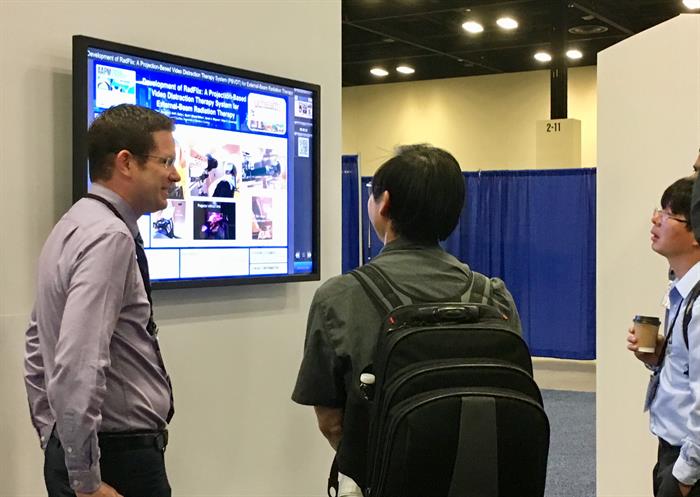
AAPM - 2018 Colorado Presentations
The faculty have mentored 12 post-doctoral fellows to produce seminal research on a wide range of topics including Radiomics, Functional Avoidance Radiotherapy, and CBCT. Mentored post-doctoral fellows have gone on to faculty positions, medical physics residencies, and industry-based jobs. Medical Physics residents have also participated in clinical development project opportunities fostered by the rich research culture at the University of Colorado Anschutz. Past resident research projects include safety research on novel brachytherapy applicator commissioning strategies, automated treatment planning for pancreas SBRT, longitudinal imaging studies, and interstitial HDR research